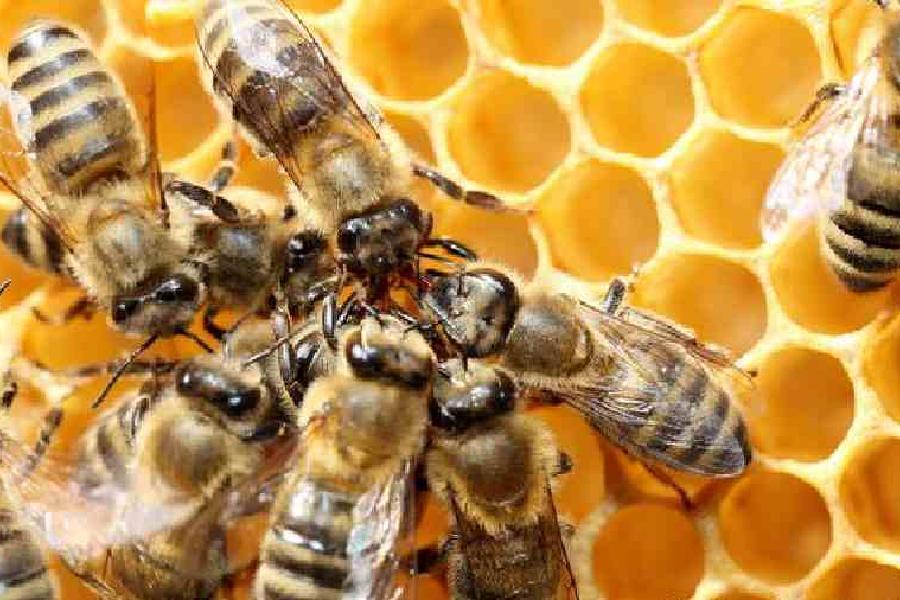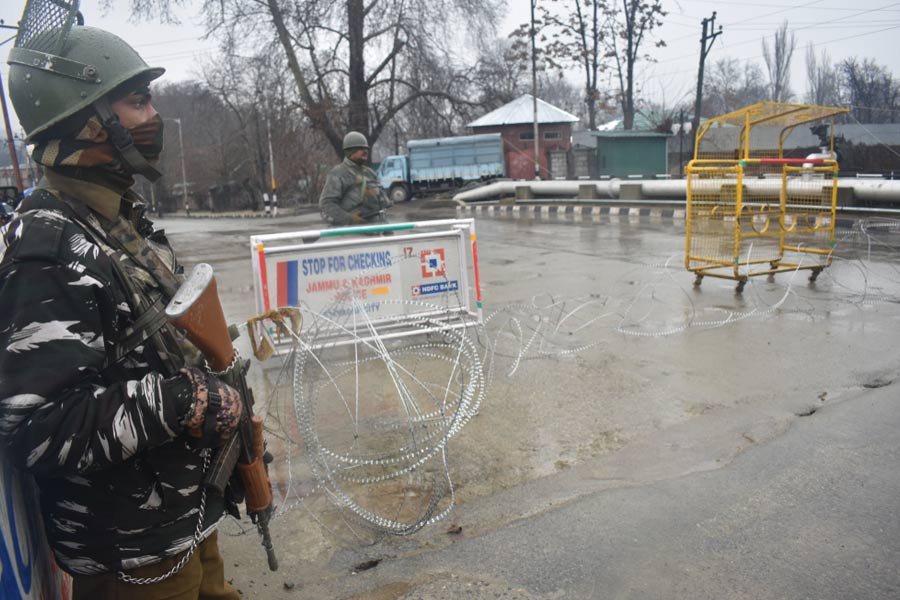The Border Security Force (BSF) has undertaken a unique experiment of installing beehives on the India-Bangladesh border fence in West Bengal to stop instances of cutting the hedge for cattle smuggling and other crimes, besides generating livelihood for the locals.
The first-of-its kind initiative was launched recently by the BSF's 32nd battalion in the border areas of Nadia district with an aim of ensuring border security and helping the local populace through apiculture, a senior officer said.
India and Bangladesh share a 4,096-km frontier, with West Bengal accounting for about 2,217 km.
The Ayush ministry has been roped in by the BSF for the project. The ministry has provided the border-guarding force with the beehives and required expertise to fix those on the alloy-made "smart fence".
Sujeet Kumar, Commandant of the 32nd BSF battalion who conceptualised the idea, told PTI that the force has undertaken the initiative under the Centre's "Vibrant Village Programme" (VVP) and gone a step further by requesting the Ayush ministry to provide it with medicinal plants that bear flowers and can be planted around these bee boxes so that the bees can pollinate in abundance.
"The idea of tying beehives to the India-Bangladesh border fence was launched on November 2. The BSF will ensure that these bee boxes are accessible to the locals engaged in apiculture and there has been a very warm response from the villagers to this initiative," he said.
Officials said the border areas under the South Bengal frontier of the BSF in Nadia district are prone to cross-border crimes like cattle, gold, silver and narcotics smuggling, and there have been instances in the past when miscreants and smugglers have either cut or attempted to cut the fence for their illegal activities.
The beehives on the fence will be a deterrent for the smugglers trying to cut the fence as any such attempt will disturb the bees and a swarm attack of the bees can seriously injure them, a BSF official explained.
While the exact numbers cannot be disclosed, the bee boxes are being put on the fence using a wooden support frame at regular intervals and in smuggling-prone vulnerable areas, the official said, requesting anonymity.
He said the Ayush ministry has provided the BSF with saplings of medicinal plants like tulsi, ekangi, satmuli, ashwagandha, aloe vera and the force personnel, along with the locals, are planting those in the border areas.
Mustard too is being planted and a public camp was recently held in Kadipur village of Nadia where the locals were informed that the honey that they extract from these beehives will be sold through the established setup and shops of the BSF Wives' Welfare Association. The profits made from the sale of the honey will go to the locals, the official said.
Ayush ministry officials have also told the BSF that the locals have informed them about the Mango trees in the area not bearing good-quality fruits, but due to beekeeping in the border area, these plants could start producing good-quality fruits, which will help increase the income of the villagers.
Honeybees hover over flowers to collect food and as pollinators, play a vital role in the production of many crops that are needed to feed the world's population. Bees are responsible for pollinating almost all crops worldwide, including fruits, vegetables and nuts. It has been estimated that without bees, global crop yields could decrease by up to 35 per cent, the officials said, quoting Ayush ministry experts.
The BSF is the designated central force tasked with guarding the India-Bangladesh front. The "Vibrant Village Programme" launched recently by the Union government aims to ensure all-round development of the far-flung and remotely-located regions on the front.
Except for the headline, this story has not been edited by The Telegraph Online staff and has been published from a syndicated feed.











